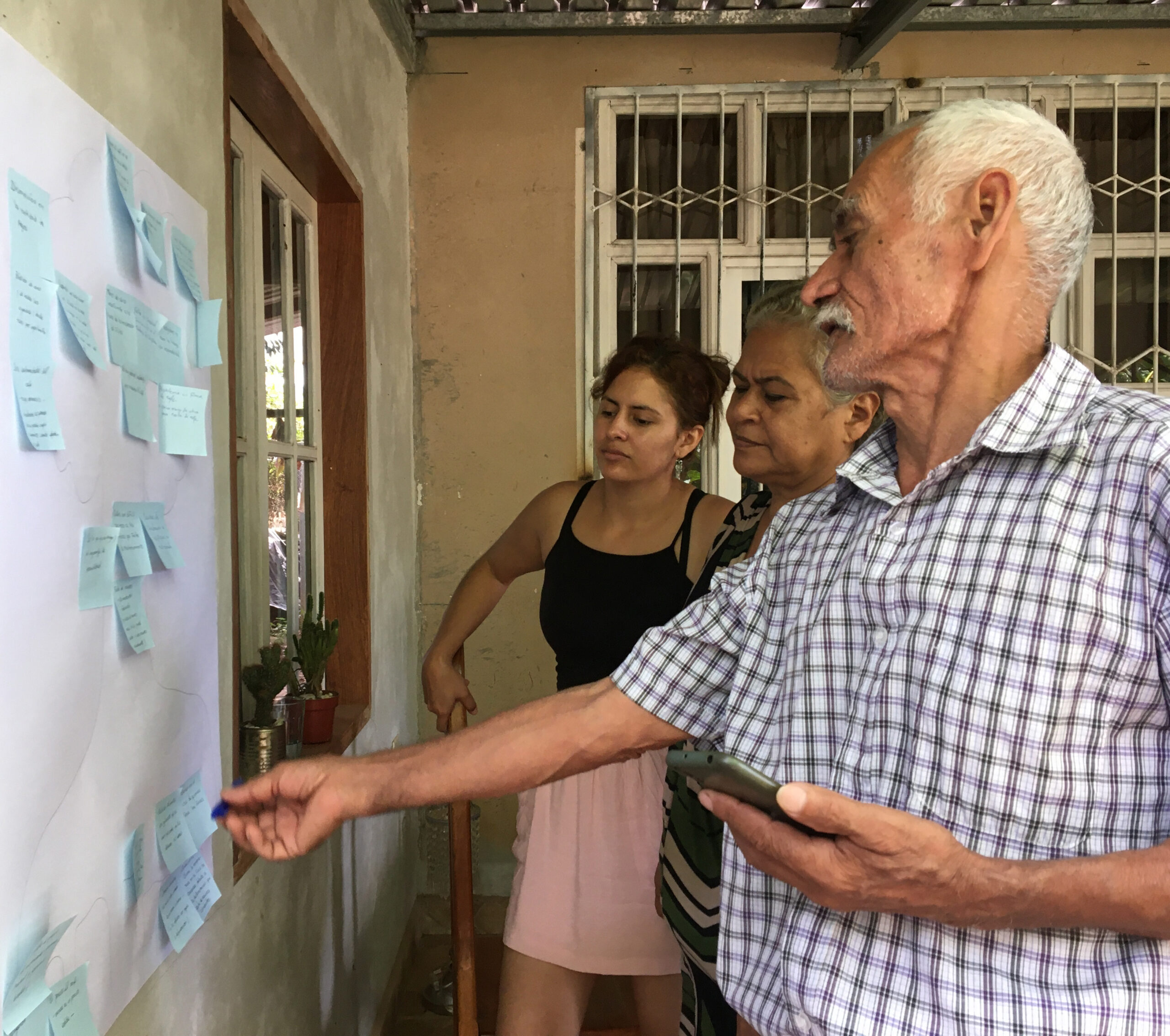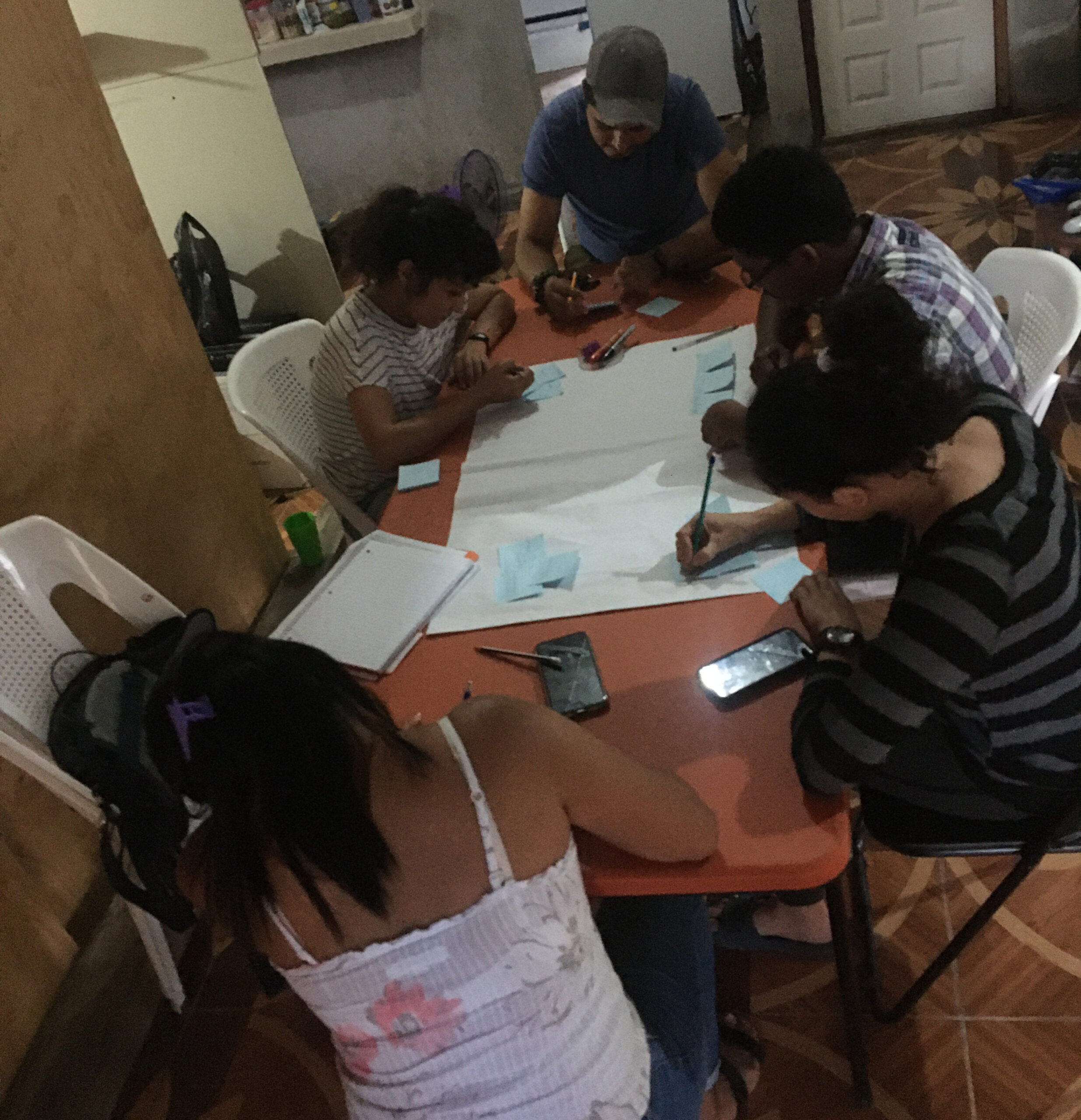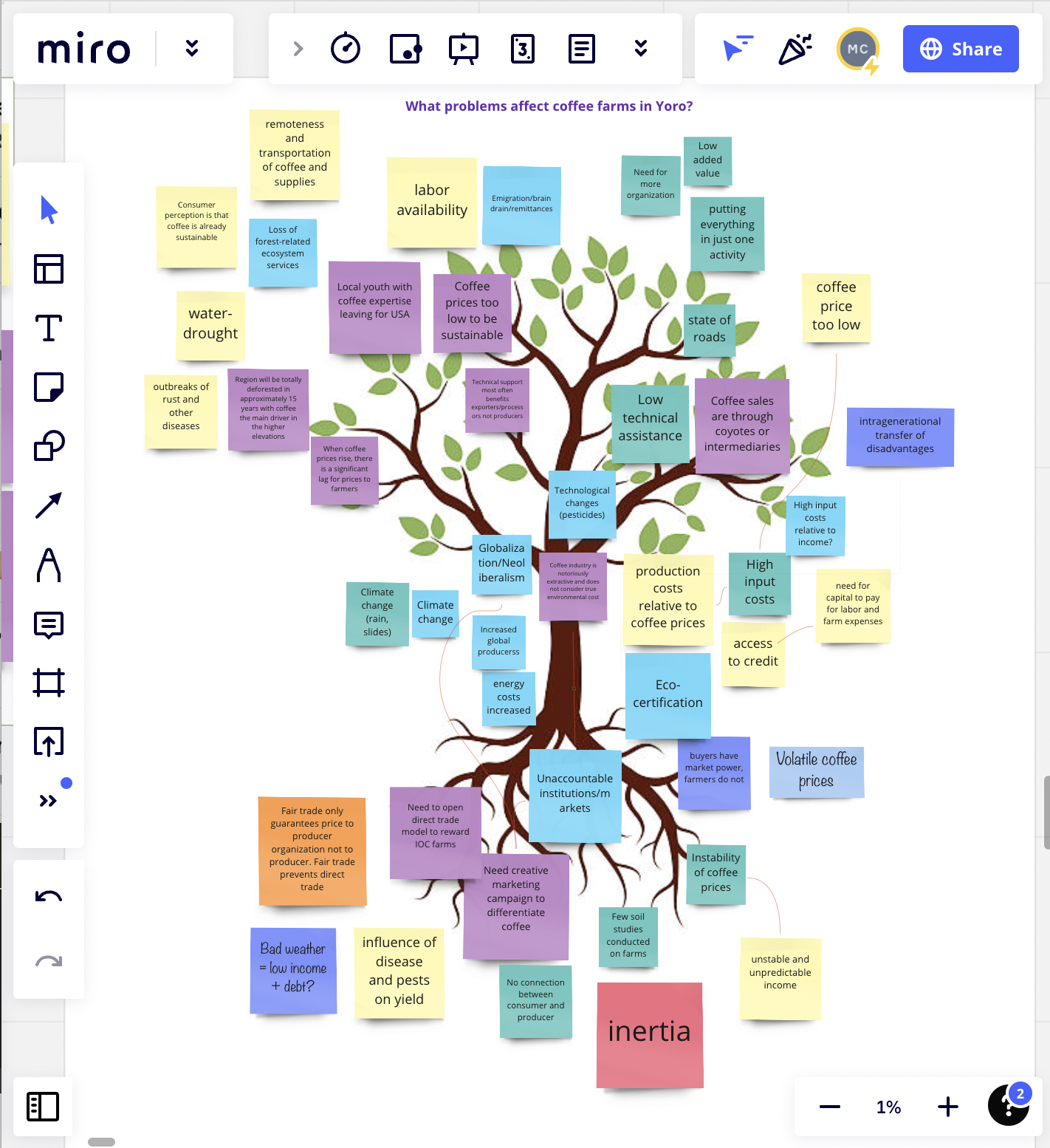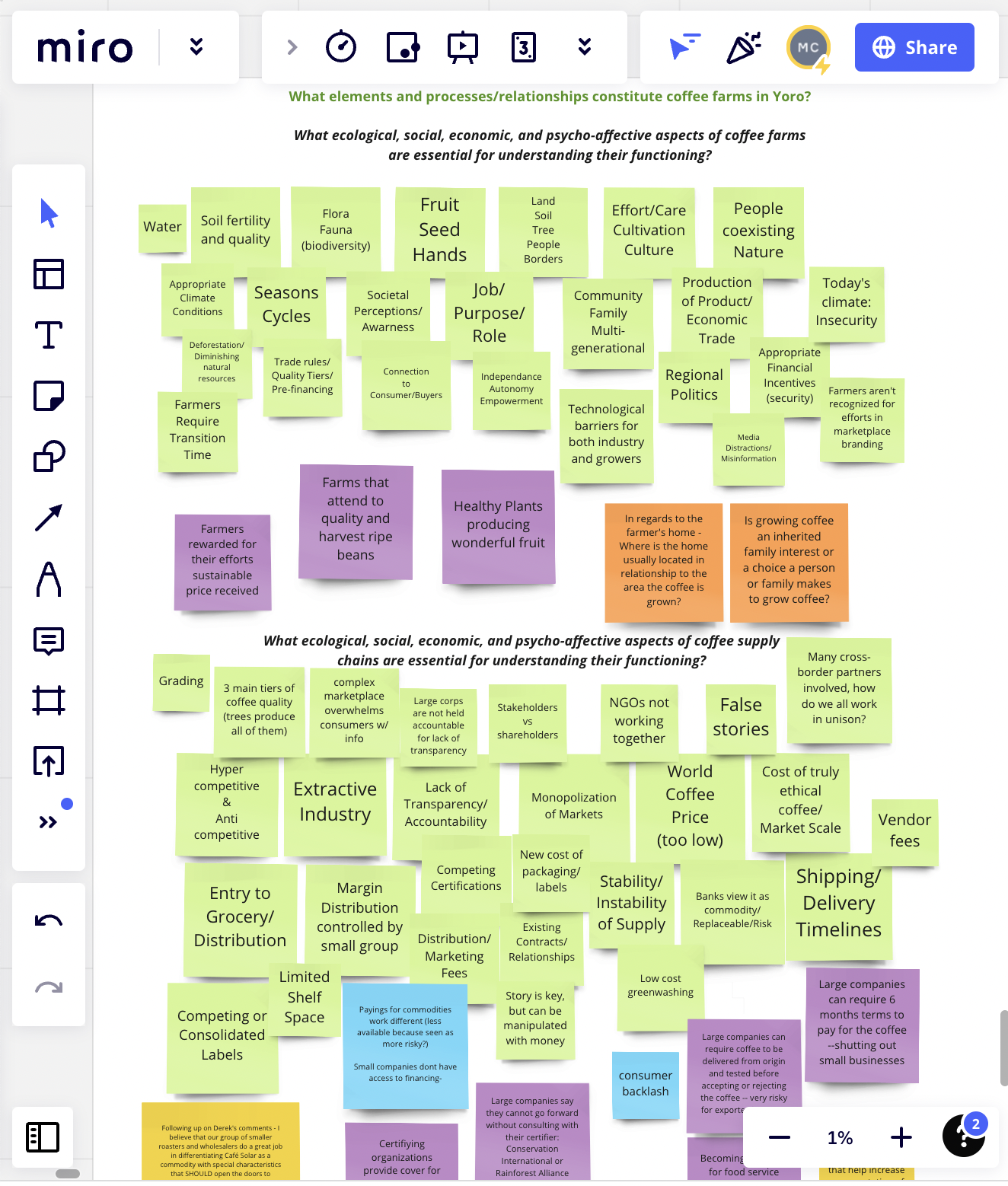A participatory model to promote the sustainability
of coffee farms in Yoro, Honduras
Subproject Leaders: Marcela Cely-Santos & Caz Taylor
The coffee value chain is complex and connects different actors with direct and indirect influence on the management of coffee farms and the well being of their inhabitants. Research has tried to understand the dynamics and functioning of the different links of this value chain and the social and economic dimensions of coffee sustainability. However, approaches have not addressed these dynamics systemically, or in ways that allow to understand how different actors and links across the chain can be articulated to effectively promote the sustainability of coffee-producing territories.

Image 1. Producers constructing a problem-tree to discuss problems experienced in coffee farms

Image 2. Biologists constructing a problem-tree to discuss problems experienced in coffee farms
Comprehending the dynamics and mechanisms through which the socioeconomic and ecological dimensions of coffee farms contribute to their sustainability also entails understanding the interests, problems and strategies of different actors across the coffee supply chain. In this project, coffee producers, importers, roasters, distributors and scientists working in coffee are creating a quantitative model to answer a question of common interest that allows to design transitions towards sustainability in coffee farms in Yoro, Honduras (Images 1-4). This model will integrate not only the knowledge and expertise of the people participating in model construction, but also the primary data obtained in coffee farms (corresponding to other subprojects), as well as secondary data pertinent to the region and the coffee value chain.

Image 3. Problem-tree produced by principal investigators to discuss problems experienced in coffee farms

Image 4. Some of the elements and processes essential to understand coffee farms and value-supply chains according to coffee importers, distributors and roasters
The coffee value chain is distributed across the world; that chain connecting producers and consumers of coffee produced in Yoro, Honduras, is not an exception. Because of this, we conduct different activities in analog and virtual formats to build our model. From workshops conducted in the field to interviews and virtual workshops, we have engaged in guided discussions to 1) define the problem or goal for model construction, 2) understand what actors and interactions link elements of coffee farms and the coffee value chain; and depending on the question defined as a collective, 3) structure the model, 4) evaluate it, and 5) analyze different scenarios based on simulations resulting from the model. The effort to depart from a common question will result in a more pertinent model and a more legitimate social learning process for the benefit of all participants collaborating in model construction.